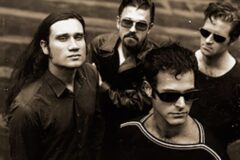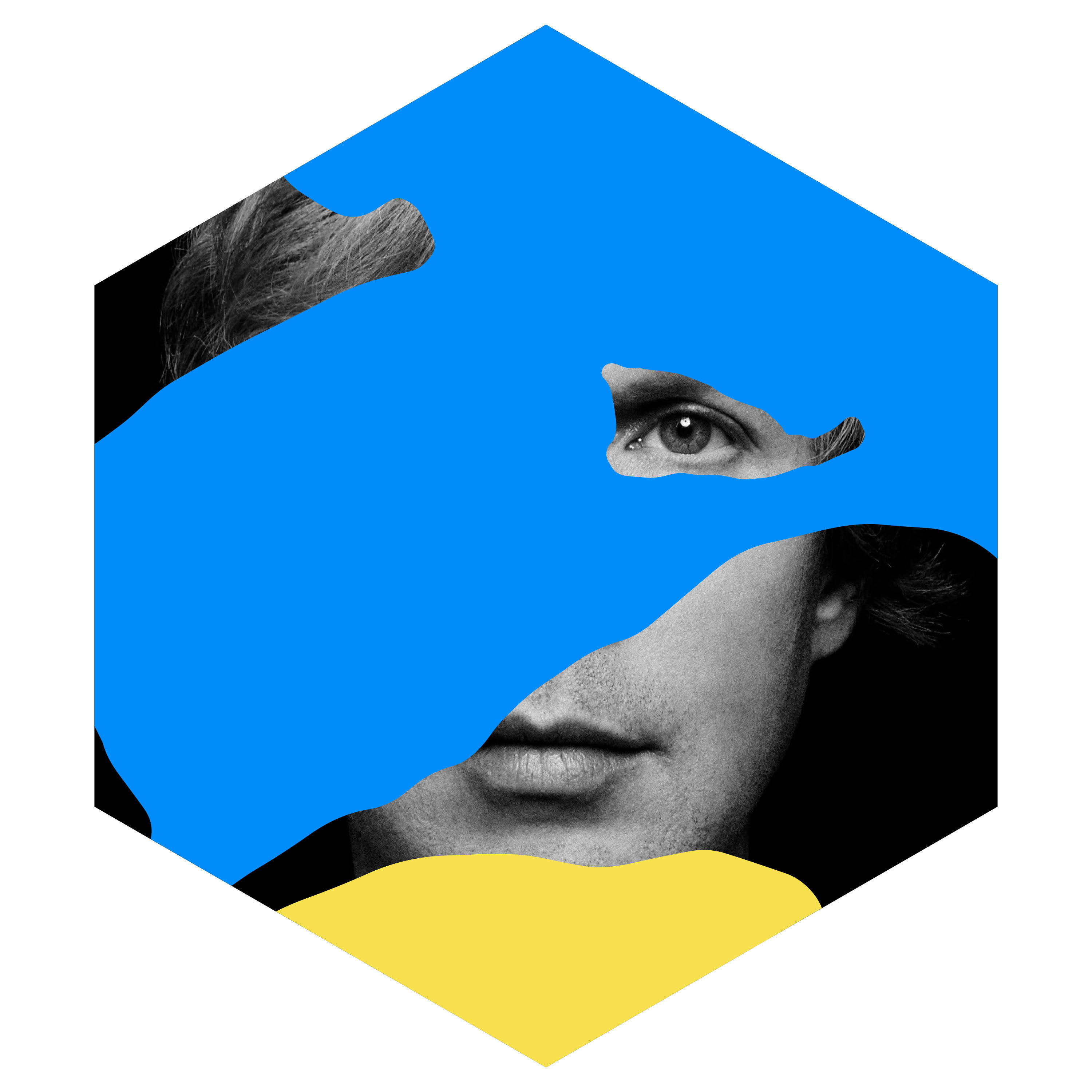Those expecting Colors to be Beck’s return to pop should ponder how limited their definition of pop is. After all, his previous record—2014’s ruminative, twilit Morning Phases—was awarded Album of the Year by Grammy voters, as good an indicator as any (apologies to Bob Newhart and Vaughn Meader) that he made a pop album. If a return to pop means wide-ranging sonic assemblages cut with oblique texts, Colors doesn’t really qualify: It’s largely a plainspoken, cohesive work, closer in spirit to single-minded efforts like Morning Phases, Modern Guilt, or even Sea Change. And really, that’s fine. He’s a married father of two; we don’t need him back on his jive bullshit.
Not that it’s completely gone. It crops up on early single “Wow,” a gloomy mixture of Morricone (replete with digital flute and lonesome whistle) and hip-hop. Beck drops into his lower register like some half-hearted loverboy, and when he sits up in his saddle, he sounds like “Weird Al” Yankovic parodying Beck (“Standing on the lawn doin’ jiu jitsu/Girl in a bikini with the Lamborghini Shih Tzu”). He originally wanted Chance the Rapper on the track; if he’d succeeded, he might’ve employed the Def Jux flow he used on Childish Gambino’s 2012 cut “Silk Pillow,” whose production sounds like a Colors precursor. These days, his flow works better as a track’s embellishment, rather than its excuse: His double-time cadence (“I’m gonna freeze out/These enemies out/They never see what I got/No need to bend my knees down”) on the buzzy power-pop track “I’m So Free” complements the theme of blissful ignorance.
That kind of punchiness dominates the record, performed almost entirely by Beck and co-producer Greg Kurstin. “Dear Life” is a remarkably accurate pastiche of late-period Elliott Smith, right down to the honky-tonk piano and deliberate, stinging guitar solos. The booming psych-pop of “Dreams” bests Foster the People at their own game, dripping with riffs and high-tenor hooks; the drop-out before the chorus is the expert touch you’d expect from two pop professionals. Beck repeats the trick on “Up All Night,” a hangout ode bracketed with head-cold acoustic strum and seeded with dial-scrambled vocals. The sentiment’s simple, but so is the joy after you finally get the kids to bed.
Colors is all about these small stakes. Once upon a time, Beck expressed desire exclusively through winking skeeze or a pointillist surreality; now, he’s just frank. The Police homage “No Distraction” is his pledge to put the phone on the nightstand. “Pull you to the left/Pull you to the right/Pull you in all directions,” he purrs over taut guitar flashes. The chorus to album closer “Fix Me”—a slight lullaby that abandons both its symbolism and minor chords as soon as they’re introduced—is essentially “I want you” sung four times. When Beck picks up his lyrical kaleidoscope, as on “Seventh Heaven,” the effect is practically meta. “I want to see you/With the pharaoh’s curse,” he sings over dual rubbery guitar figures, “The apple flower doggerel/The batteries burst”. On the chorus, he wraps himself in reverb and a synth twinkle reminiscent of Tango in the Night. These touches aren’t for trainspotters; they’re just part of his process. “[Colors is] not retro and not modern,” Beck told Rolling Stone in August, and he was (more or less) right: He’s trafficking in the kind of pop/rock that’s worked for decades.

Also Read
30 Overlooked 1994 Albums Turning 30
There’s always time for the bricolage Beck to assert himself again, but it’s worth noting that there more years have elapsed between Colors and The Information than between The Information and Odelay. At the outset of his major-label career, Beck (and his collaborators) scavenged the ‘60s and ‘70s like estate-sale vets, a bunch of Gen-X wise asses trying to make their parents’ records sing in a new register. The result was recombinant pop that inadvertently paid tribute to the dawning of the LP age, when record companies threw disparate sounds at the public—South American rhythms and psych tantrums and orchestral schmaltz and R&B groove—to see what stuck, a foreshadowing of the anything-went Alternative Age.
Now, though, it’s the professionalism of the era that resonates with Beck. Colors was recorded around his touring schedule and Kurstin’s other production duties. “It’s almost like the 1960s,” he mused in that Rolling Stone interview, “where you have a morning block [of recording] and an afternoon block.” That Colors hangs together four years after it was begun is a credit to this sense of craft. It’s possible that he’s done with arch zaniness as a dominant mode; that he’ll no longer be “a chameleon changing colors on demand,” as he puts it on “Square One”. Plus, samples are expensive, and so is your kids’ tuition.
https://open.spotify.com/embed/album/6BOQkxcHspMoRWEwEexf4l




